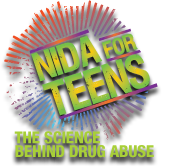
Get good grades. Spend time with friends. Make your parents proud. Eat healthy. Exercise. Volunteer. Choose a college. Don’t relax until you’ve finished all of the above.
Sounds stressful. Yet these are the everyday situations many teens face. Add to that other common problems like bullying, sex, drugs and alcohol, joblessness, and family troubles, and it’s easy to see how teens can feel overwhelmed.
That’s where a mentor can help. Mentors are volunteers who support young people through the stresses of school, family, and friends—in other words: life. Mentors are trained in one or several areas to serve as guides, tutors, career advisors, and friends.
One of the oldest and best known mentoring networks is Big Brothers Big Sisters. Founded more than 100 years ago, it matches adults to young people age 6 to 18, one on one, to develop positive relationships that have direct and lasting effects.
Mentors can be a lifeline when you can’t turn to friends and family for help. School-based mentoring is growing more popular: Volunteer mentors work with students during or right after school.
It’s not always adults mentoring teens. Many high schools offer teen leadership development and peer mentoring programs. The Web site DoSomething.org—for and about teens—offers a campaign to Start a Peer Mentoring Program in Your School. Signing up and getting started could earn you a $2,000 scholarship.
The Benefits of Mentoring
People often form enduring relationships with their mentors and experience good changes in their lives like performing better in school or having a more positive attitude in general. According to a study by Big Brothers Big Sisters, evidence suggests mentoring can lessen the chances of teens starting to use drugs or alcohol and engaging in violent behaviors.
But the mentors benefit too. Big Brothers Big Sisters also found that high school students who mentor younger people report improved interpersonal skills—communicating better, being more patient, and wanting to be a better role model.
Have you ever been someone’s mentor? Do you have a mentor yourself? Tell us your experiences in comments.





Comments
wow needed this for only a project but wow
Add new comment